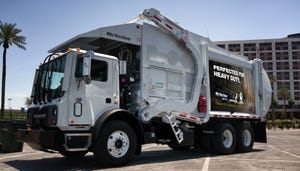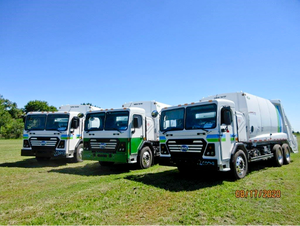The Next Big Hit
October 1, 1993
Bill Wolpin
A wise man once said that transportation will be the single biggest issue in the waste business in the next few years. Actually, it was Lanny Hickman who said this at least a year ago. (Lanny, one of the industry's wise men, is the head of SWANA - the Solid Waste Association of North America).
Lanny is right, transportation is going to play a large role in our industry for a variety of reasons. First, slowly but surely the nation's railroads are becoming savvy to the way our industry operates. They've been learning by working with knowledgeable people in our industry as well as through their own experiences of the last four to five years.
There are several examples of small rail projects dotted throughout the country, as well as substantial ones, including the East Carbon Development Corporation site in Utah.
Second, waste collection, processing and disposal costs are increasing and transportation could provide some real cost benefits. In fact, transportation factors can lower the overall cost of waste disposal for many communities, ultimately becoming a competitive advantage for those seeking long term disposal contracts.
Third, with smaller landfills closing as a result of Subtitle D's costly requirements, many communities will not have many other options except to move its waste out to distant disposal sites or incinerators. And as many of us already know, some incinerators are already offering lower tip fees for waste from outside their boundaries than for waste generated locally. One recent report in The Wall Street Journal cited a New Hampshire facility that charges $96 a ton for local waste while charging $40 a ton to out-of-towners. This is an exaggerated example, but other facilities are charging higher rates locally.
While these communities will be forced to transport their waste in the short term, it's my guess, that once they start to ship their wastes out, they may view this as a long-term option, particularly if the economics makes sense.
Finally, as far as the legal issues surrounding transportation, such as flow control, I am convinced that no court or legislative body will require each state to dispose of its wastes inside its own borders. Even if some form of flow control is allowed, it will be limited allowing states to at least make some sort of waste disposal pacts.
In short, those in the waste transportation area are coming of age, and not a moment too soon. I expect their expertise as well as their services will be in great demand in the near future.
Is transportation going to be the next big hit on the waste industry "hit parade?" Yes, but unlike recycling or waste-to-energy, it cannot be sold unless the economics work immediately and in every instance.
Will transportation rescue us from the mountainous problems that face our industry?
You've got to be kidding.
You May Also Like


